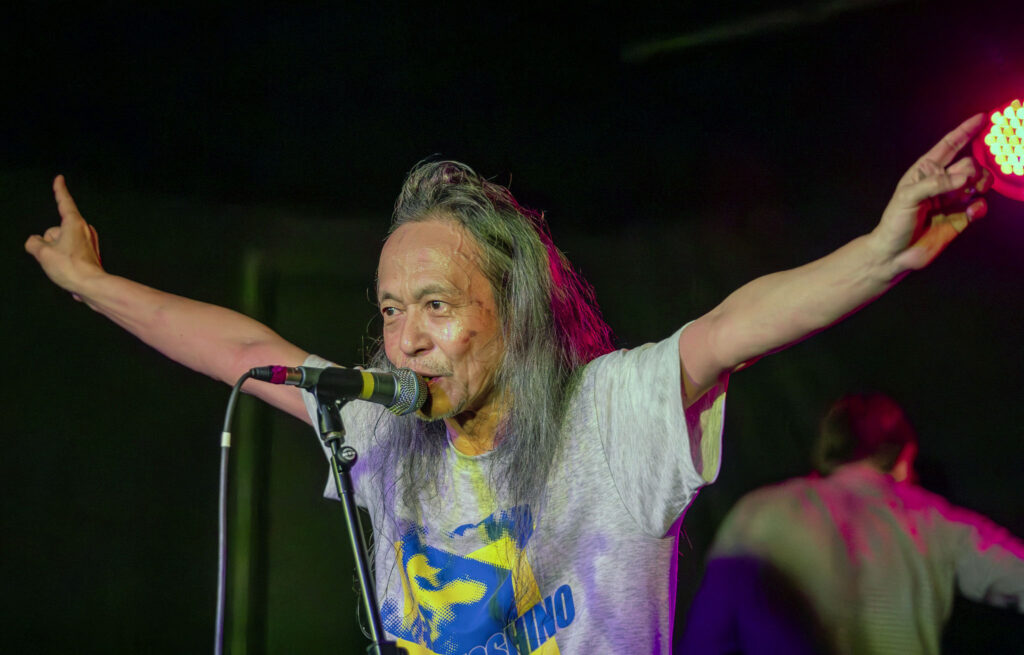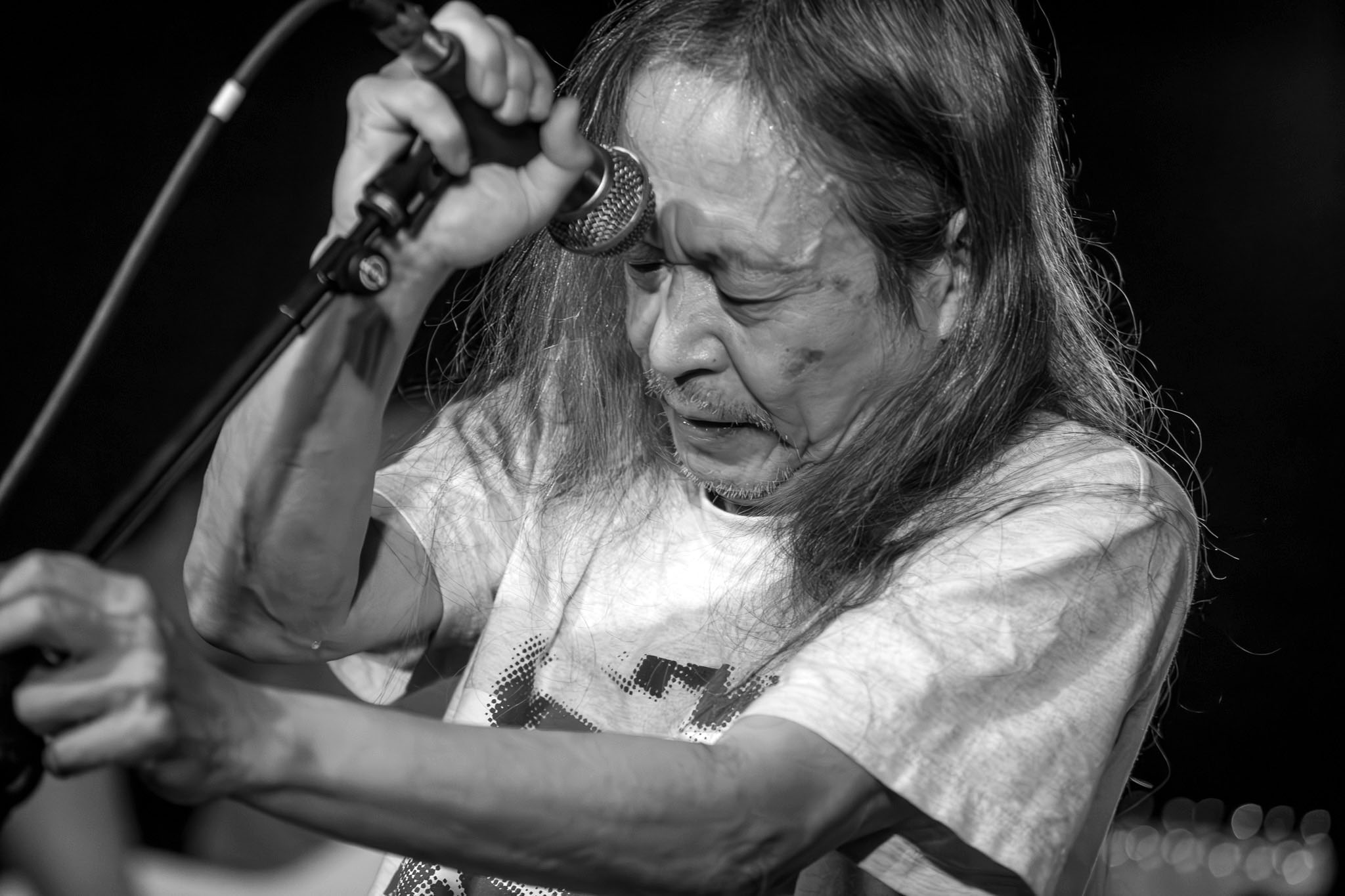Numerous sources have today confirmed that Damo Suzuki has passed away at the age 74. The Japanese musician is perhaps best known for his time spent as the vocalist and frontman of Can between 1970-73, a period commonly regarded as being the pioneering German band’s peak and during which they released the hugely influential albums, Tago Mago, Ege Bamyasi, and Future Days.
Damo Suzuki left Can to devote more time to religion and stopped making music altogether for the next ten years, re-emerging in 1983 after leaving the church and having recovered from his first diagnosis with cancer. For the next 40 years Suzuki embarked upon a singular path to create often wildly experimental, improvisatory, and dynamic music. His regular sonic vehicle for this odyssey was the Damo Suzuki Network, who undertook a ceaseless world tour with an ever-changing cast of local musicians Suzuki referred to as “sound carriers”, reinforcing his belief that “music is always a communication.”

These concerts were spontaneous events, consistently exploratory in nature and all rooted to the fundamental principle of freedom of expression. I had the great fortune to catch three of these happenings – initially at the Brudenell Social Club in Leeds in 2005, then three years later at the ATP Festival in Minehead, before catching him for the third and final time at The Crescent in York in 2018. My review of that show can be found here.
What made the last of these gigs even more remarkable was the fact that in 2014 Damo Suzuki was diagnosed with colon cancer and given a 10% chance of survival. But given the man’s indomitable spirit and incredible determination he continued with his never-ending world tour while undergoing 40 surgeries for cancer in three years. This period in Suzuki’s life is captured in a documentary Energy: A Film About Damo Suzuki, by Michelle Heighway.
Photos: Simon Godley




